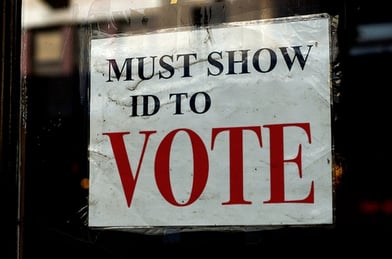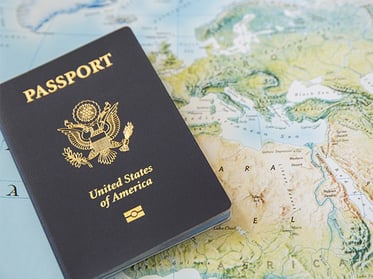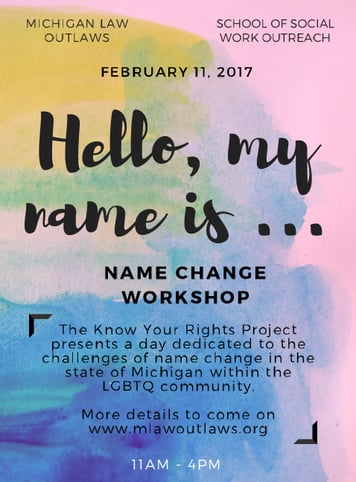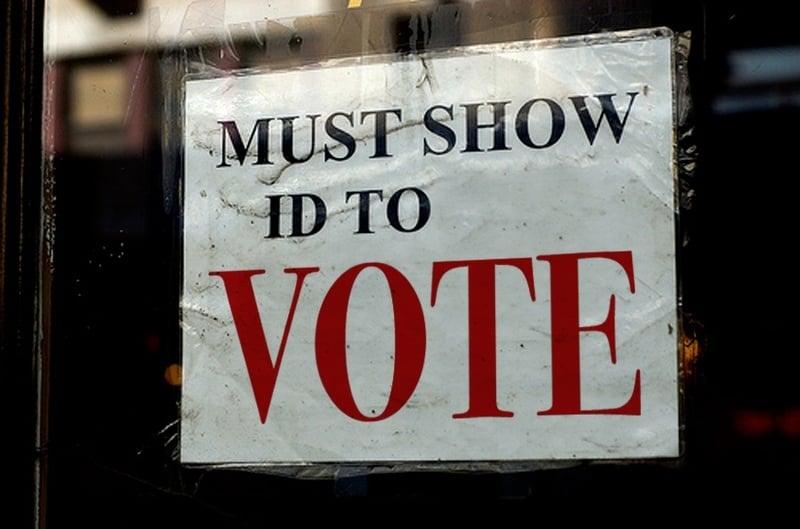In my home state of Oregon, we vote at home via mail-in ballots. But in Michigan, where I go to school, I had to amble down to the local public library to cast my vote in person for the first time. The line snaked down a spiral staircase to the poll workers, where a man held my ballot in one hand and with the other, gestured for my government identification.
Standing there in line, I thought of all the transgender people whose government ID - their driver’s license, identification card, passport - lists a name that is no longer their own. It has a gender marker that doesn’t match who they are inside, let alone how they express their gender to the world. The official stood with his hand outreached for my identification card and I thought of all the trans people who were being prevented from voting because they were afraid of the violence they might encounter when attempting to participate in our democracy.

Before I moved to Michigan, I assisted homeless and unstably housed transgender people through the process of obtaining affirming identity documents. Starting with legal name and gender changes through the courts, I’d work with clients to secure a driver’s license or ID card that matched their true and authentic selves. For my clients and for a majority of transgender people, an affirming driver’s license is the key to sleeping in a shelter instead of on the street, securing and keeping employment, and realizing the stability necessary to maintain holistic health and wellness.
Think about how many times you have to show your ID to someone to prove who you are and receive the goods and services you need. I challenge you to count the number of times you’re asked for your ID in a week. Each time, imagine feeling crushed by the anxiety that your name and one letter on that ID - that ‘M’ or ‘F’ - could put you in physical danger. This is a reality that the majority of trans people carry with us each day.
As a white transgender man, I’ve had the privilege to change my legal name and gender marker on the majority of my legal documents with the exception of my birth certificate. My birth state does not allow one to change their birth certificate unless a person has had “all the surgeries”, a vague policy that no one at the vital records department could clarify for me.
Since my birth state’s vital records department wouldn’t budge, I applied for and received a passport that reflects my correct name and gender; this is the citizenship document that I travel with and that I present in lieu of my birth certificate. Under the Obama administration, policies were enacted that eased the requirements for trans people to change their name and gender marker on their passports. Instead of requiring a person to have undergone gender affirming surgery, the U.S. State Department now only requires a medical certification from a Medical Doctor (M.D.) or Doctor of Osteopathy (D.O.) that attests a person has undergone transition before issuing a correct passport.

In the wake of the election, transgender people have been urged to obtain affirming legal identity documents out of fear that after January 20th 2017, these policies will be reversed and it will become increasingly difficult for us to protect ourselves under an administration that continues to demonstrate an incredible hostility toward LGBTQ people. What I hear from my friends and the trans community is an urgency rooted in the terror. 2016 was the deadliest year for trans people in the continuing epidemic of transphobic violence - at least 26 trans people, the majority being trans women of color, were murdered for living their truth. I wonder, how many more will die in the next four years?
Trans people know that affirming identity documents won’t stop us from being killed, fired from our jobs, or kicked out of our homes. However, documents that match who you are can reduce possibility of violence when interacting with these institutions and their respective agents that erect barriers to services because of that ‘M’ or ‘F’.
With an understanding that not all transgender people will have the capability to access and/or afford court ordered name changes or affirming passports before the inauguration, I’ve partnered with the Jim Toy Community Center’s Know Your Rights project and the University of Michigan’s law student group, OutLaws, to host a name change clinic in early February 2017. Our goal will be to assist transgender and gender nonconforming individuals in beginning the process of gaining affirming identity documentation by initiating a court ordered name changes. The clinic will be available to walk participants through the laborious process, complete court forms, answer legal questions, and be paired with an advocate to accompany them through the filing process at their local county courthouse. We’re hoping to reach transgender people across Michigan who otherwise could not navigate the process to gain that one piece of paper, that one ID card, that will reduce their exposure to potentially dangerous situations and increase their ability to access housing, healthcare, and employment.

Jazz's flyer for the name change workshop
When the poll official requested my ID, I could hand him my driver’s license without fear of danger. I could stand there in the knowledge that there were so many trans people that couldn’t exercise the same privilege as me. Now, more than ever, I’m ready to use my privilege and knowledge to assist as many trans people as possible in their name and gender change process. I call on you to do the same in whatever capacity you can.
 This post was written by Rand Skolnick Point Scholar Jazz McGinnis
This post was written by Rand Skolnick Point Scholar Jazz McGinnis
Jazz earned his Bachelor of Arts in Sociology from the University of Oregon and was awarded the Wilson Cup for his outspoken advocacy as an out transgender student. His passion for competent and affirming transgender health care has led him to the field of Social Work at the University of Michigan, where he plans to further his advocacy for LGBTQ health equity. Read more about Jazz here.

